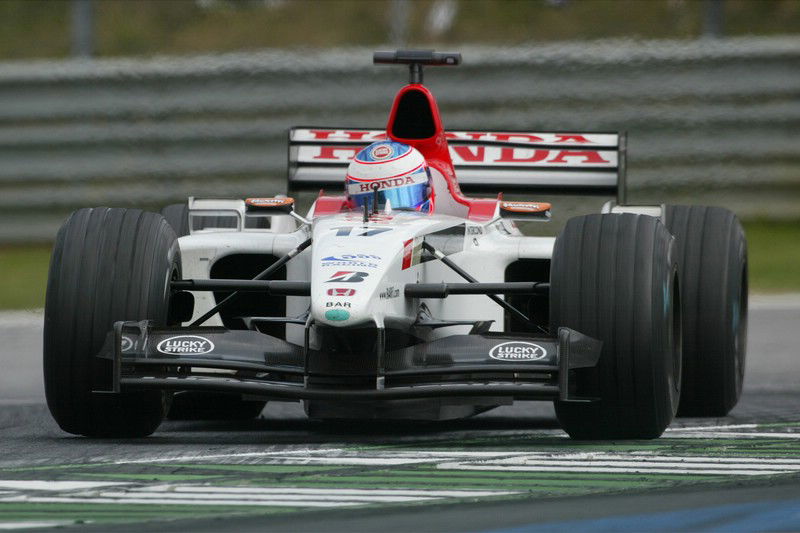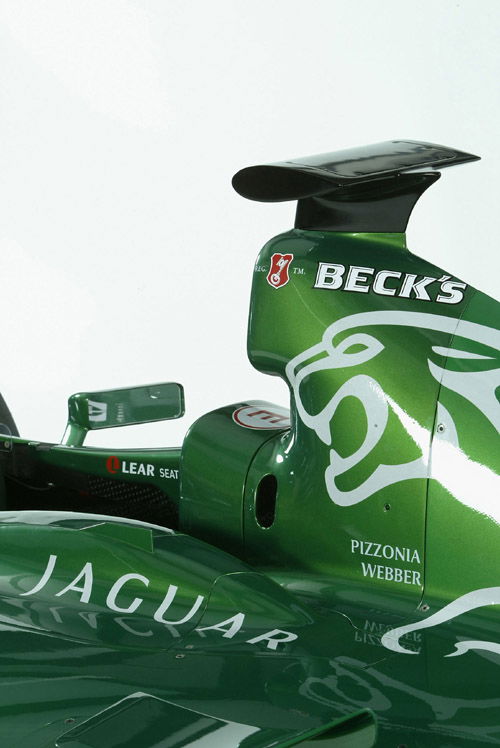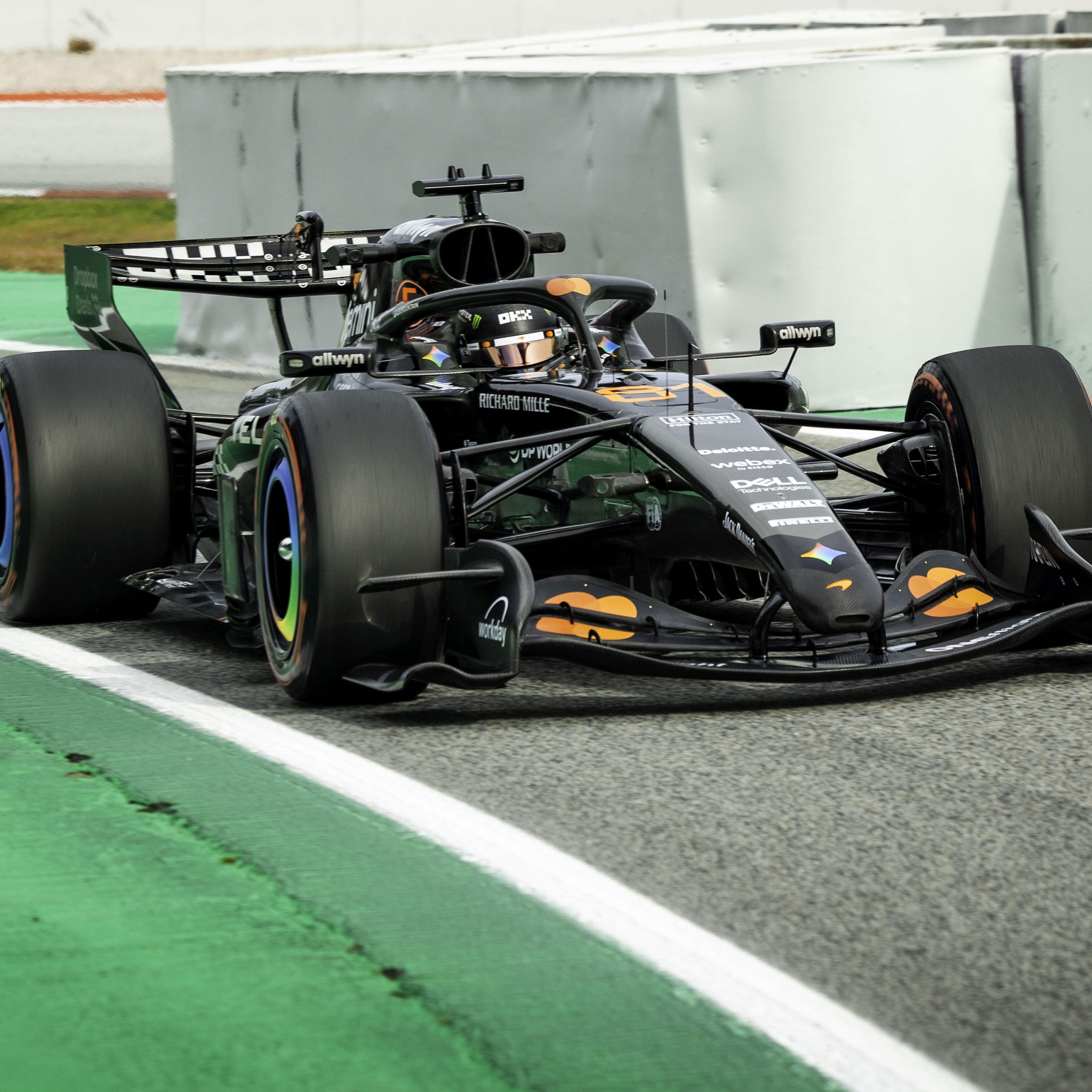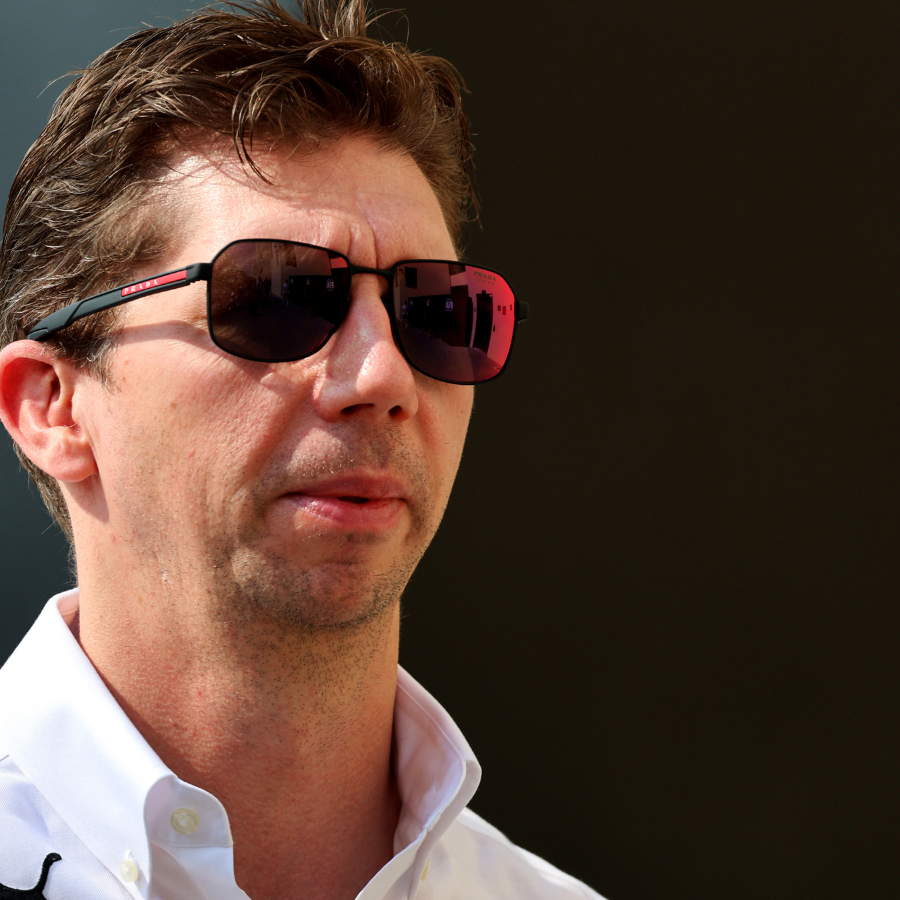Q&A: John Howett (Toyota).
John Howett, President of Toyota Motorsport GmbH, talks about his role at the team, his relationship with Ove Andersson, the affect of the new rules and more...
Q:
John, having graduated from Loughborough College of Technology, how did you first become involved with Toyota?

John Howett, President of Toyota Motorsport GmbH, talks about his role at the team, his relationship with Ove Andersson, the affect of the new rules and more...
Q:
John, having graduated from Loughborough College of Technology, how did you first become involved with Toyota?
John Howett:
Basically I just saw an advert. At the time I was working with a big dealer group in London and wanted to go into the manufacturing side of things. The industry in the UK was in turmoil in those days and this advert came up to work at Toyota Great Britain Ltd. I applied, thinking it would be a transient job, and 25 years later I'm still a Toyota man!
Q:
Your working relationship with Ove Andersson dates back a long time, does it not?
JH:
It could certainly be said that we go back a long way. In 1977, we ran a Toyota Celica in England for Hannu Mikkola. Toyota GB did the British Rally Championship with a view to trying to win the RAC Rally. There were just two of us supporting the car and for a big event like the Circuit of Ireland, we would have four. Things have changed a little bit since then. I was running the car during the 1977 season with the support of Toyota Team Europe, which was then based in Brussels. They then offered me a job and I went to Belgium for a few years before the team moved to Cologne in 1979. I then moved back to work at Toyota GB in all after sales areas, where I stayed for about 10 years before going to Toyota Motor Europe. I went there still working on the after sales area but moved into vehicle marketing. I was involved with the Yaris launch and then with Lexus sales and marketing for Europe and then the total after sales operation for the last year before I joined the F1 operation as President of Toyota Motorsport.
Q:
In this new role as President, is it fair to say that you concentrate on the operations in Cologne while Ove Andersson concentrates on the on-track side?
JH:
Yes, this is correct. By focusing my work on the day-to-day running of the operations in Cologne, Ove has more time to concentrate on the race track side of things. Having said that, the output from our factory in Cologne has to deliver at the track, so one of the reasons that I come to some races is to see what we should be doing and what we should be improving at the factory in terms of development or quality control.
Q:
In other words, your role applies Toyota's philosophy of "Genchi Gembutsu" (going to the source and learning)?
JH:
Absolutely. I spend a lot of time walking around the factory in Cologne and based on this activity, I think one of the most critical areas is planning and integration of communication, especially in an environment where you build everything - engine, chassis and, of course, a team of over 550 people. Communicating the plans between all the groups is quite a task, trying to make sure the entire group understands what the key priorities are and where the focus should be.
Q:
Do you agree that building an entire F1 car and team under one roof is the best philosophy?
JH:
Without a doubt building the whole team and car under one roof is the best way to go. It enables us all to react quicker and to build a team spirit together. It takes time because we have people from many environments and many backgrounds. Slowly but surely you can see people being able to focus on a common objective and working to support it. With any activity, if you have one group working on one thing and another doing something else, it is very easy to have them working in isolation, without considering the whole. In an activity like racing, which demands such quick responses, it can be costly. Total communication is vitally important. It's probably not hugely different from other organisations. I think all big companies are in a similar situation, but an advantage you have at Toyota is that people are hugely passionate about what they do. Fundamentally the motivational side is quite easy, but we have to make sure that the passion does not deter from the focus.
Q:
What is your impression of what Panasonic Toyota Racing has achieved so far?
JH:
I'm hugely impressed with what we achieved in such a short space of time. This is only our second year in F1 and we've learnt a lot. We are still making positive progress and the car this year is a good basis for future development. When we get it right, the TF103 is very competitive but we probably need a bit more experience to optimise it in all conditions.
Q:
Is it tough getting the job done at the circuit under the new rules?
JH:
The new rules have certainly added an extra challenge, and again, because we don't have people who have been working together for five or ten years, it's very tough to have just one hour free practice on Friday before going straight into qualifying. Saturday is a little more relaxed - although that's probably the wrong word - but if you are not on the pace it is a lot of pressure and stress on the team. But I see many positive things. We are starting to react more quickly and resolve problems really effectively and get the car on the pace much quicker.
Q:
How do you rate the races so far?
JH:
In the Australia and Malaysia we were on the pace or thereabouts, in Brazil Olivier was quickest in the warm-up session but in the wet weather I think we probably weren't good enough at optimising the set-up. Again that's experience. Imola was a big challenge for us because it is about big kerb-riding, but again I think we are in a lot better shape than a year ago. The team did a great job in Imola on the first two days to get the car in a better condition but we were a little disappointed with the race pace. Spain was a totally different story. We showed signs of out-and-out speed and competitiveness throughout the race weekend with Cristiano [da Matta] in 4th on Friday, Olivier qualifying in 6th, and then Cristiano driving an excellent race to finish sixth. The three championship points were a welcome reward for the whole team, but without resting on our laurels, we expect many more good results this season.
Q:
Have you always been a Formula 1 fan?
JH:
Yes, but I enjoy it more from the inside. As a spectator it's enjoyable but I the real interesting bit was working on the inside, dating right back to those rallying days. I also used to work at Ralt Cars, for example, just screwing F3 cars together on evenings and weekends.
Q:
How do you gauge the success of the F1 programme from a marketing standpoint?
JH:
At the moment it is a bit early to say but in the future we will be able to prove whether our brand awareness or brand sympathy is increasing and how the image of the brand or the profile is changing. There are a lot of intangible benefits too and the better we do, the more positive and beneficial the whole activity is to the corporation. You also have to look at the internal motivation of the Toyota organisation and I can say from my last year at TMME, I think many people are really motivated and proud. The dealer network is keen and obviously the customer as well.
Q:
Do you feel that ultimately you have to win, or is it enough to take part?
JH:
I think we have to win. How often do we win JD Power surveys wherever they are held in the world? Toyota, culturally, is always focusing on a task and never gives up until it achieves the target. My belief is that we will win; it's more a question of when. If you honestly look at it, our approach has been different to others. We are doing the engine, the chassis and building a team from the ground up. We're not just buying an engine company and sticking our brand name on it, or going to a top team for some brand exposure or co-operative naming. The point is that we do it the hard way, or should I say the right way - starting from scratch and building it up. That approach is typical of Toyota. Hopefully people will understand that is what Toyota as a company is about and why we build such great cars. This is the overall spirit of Toyota.







